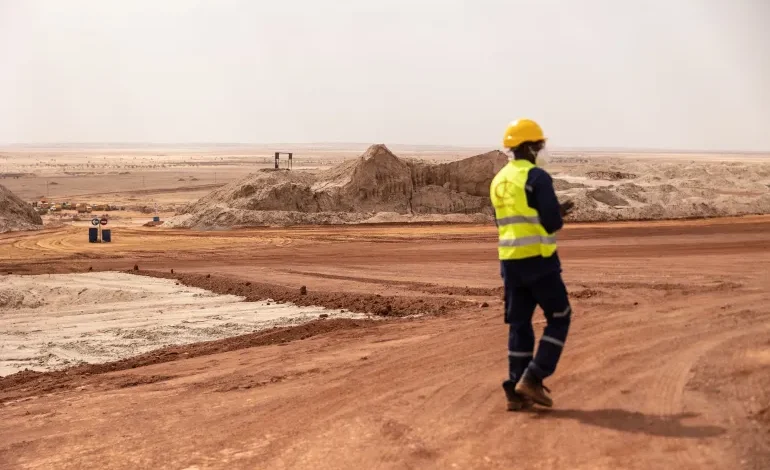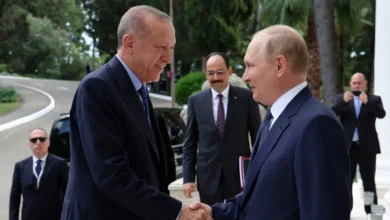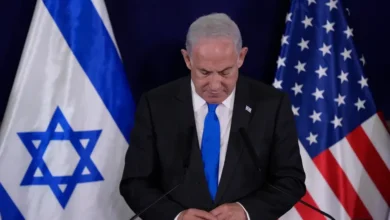Difficult to trust the resource nationalism of Niger’s military government
Tafi Mhaka Tafi Mhaka

Last month, France’s majority state-owned nuclear conglomerate Orano revealed that the military government of Niger has assumed “operational control” of its Nigerien uranium mining subsidiary, Somair. In a statement dated December 4, it claimed decisions made in board meetings at Somair – in which the state of Niger has a 36.6 percent stake – were “no longer being applied”. Critically, it said the Nigerien authorities were refusing to suspend production at the mine, while also not allowing the export of the produce, allegedly “placing a heavy burden on the employees and local communities”.
Orano says it first began to encounter difficulties in running Somair in July 2023, soon after a group of high-ranking army officers, led by General Abdourahamane Tchiani, ousted Nigerien President Mohamed Bazoum.
As a response to the coup, regional bloc ECOWAS suspended Niger’s membership and imposed sanctions on the country. These included trade sanctions that brought all exports via Benin, including Somair’s uranium exports, to a halt.
ECOWAS lifted these trade restrictions in February 2024, but Nigerien authorities decided to keep its border with Benin closed. They have also refused to recommence Somair’s uranium exports through an alternative route, and effectively ended the Orano subsidiary’s chances of commercial survival.
The military government dealt a further blow to Orano’s interests in Niger in June by revoking the permit its other subsidiary, Imouraren SA, held for mining the Imouraren uranium deposit – which is believed to be one of the world’s largest – on the grounds that the French company’s plans for development did not meet expectations.
The Nigerien junta’s apparent hostility towards the French nuclear giant is not without reason.
Since first assuming power, Niger’s military rulers have been voicing their discontent with the process by which foreign companies are able to secure lucrative mining licences, saying the land-locked African nation’s 27 million citizens ought to derive greater profit from its rich uranium deposits.
Their argument has merit.
Despite all its natural resources, Niger stands as one of the world’s poorest countries, with almost half of its population living in extreme poverty and some 13.1 percent facing severe food insecurity. Despite helping keep the lights on in Europe with the uranium found on their land, only one in seven Nigeriens has access to modern electricity services. The West African country has ranked 189th out of 193 countries on the United Nations Development Programme’s (UNDP) Human Development Index for 2023-24.
Clearly, the average Nigerien has gained almost nothing from the country’s abundant and enviable natural resources over the years. This deep injustice can be blamed in great part on the actions of France, Niger’s former colonial authority.
Niger declared its independence from France in 1960, but never really managed to put a stop to French exploitation of its uranium deposits. Taking advantage of trade agreements dating back to the pre-independence era, France has been extracting uranium in Niger with the highest possible profit margins, giving the Nigerien people nothing but crumbs, for over five decades. And at times, according to Nigerien officials, the French companies do not even pay what they officially agreed for the exports.
Mahaman Laouan Gaya, a former Nigerien energy minister and the African Petroleum Producers’ Organization (APPO) secretary-general until 2020, for example, told the German publication DW in a 2023 interview that Niger exported uranium worth 3.5 billion euros ($3.6bn) to France in 2010 but received only 459 million euros ($480m) in return.
Now, it seems, at least on the surface, the military government is rightfully trying to put an end to this unequal and exploitative trade relationship built upon French colonial privilege. Nonetheless, when you dig a bit deeper, it becomes obvious that the military government’s actions are not based solely on a desire to further the Nigerien national interest. The non-elected administration’s primary purpose in targeting Orano appears not to be to protect the nation from colonial exploitation, but to pressure France to recognise its rule.
Niger’s Mines Minister Colonel Abarchi Ousmane acknowledged as much in a recent interview with the RIA Novosti news agency.
“The French state, through its head of state, has declared that it does not recognise the current authorities in Niger,” he told the Russian outlet in November. “Does it seem possible to you that we, the state of Niger, would allow French companies to continue extracting our natural resources?”
It is clear from this statement that the military government may be willing to allow Orano to continue extracting Niger’s resources after all, but only if the French government gives them legitimacy in the international arena (and perhaps a slightly better share of the profits).
Alas, the military government appears to be doing the right thing, at least for the time being, but for the wrong reasons.
Nigeriens have an inherent right to control their national resources. Yet this fundamental right should not be abused to ensure the political wellbeing and long-term survival of an increasingly oppressive coup regime that is closely aligned with Russia – another self-serving imperial power, no doubt, eagerly waiting for its turn to exploit Niger’s uranium reserves and other resources.
Resource nationalism that the military government seems to be promoting can immensely help Niger, and bring its people well-deserved prosperity and stability. But only if the country’s rulers refrain from replacing the exploitation by the former colonial masters with their own homegrown corruption and violent repression.











